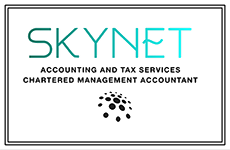Who pays for the time it takes to do a coronavirus lateral flow test?
The government has confirmed that dozens of public and private sector employers have joined its scheme to offer workplace rapid testing to employees without coronavirus symptoms who cannot work from home. These lateral flow tests give results in 30 minutes. However, who pays for the waiting time?

Where workplace rapid testing has been implemented employees will be asked to take a lateral flow test a couple of times a week. They then need to wait 30 minutes for their result, and normally they wouldn’t start work until that result is available. It’s highly unlikely the employer will have explicitly covered this type of waiting time in employment contracts. If that’s the case and they can’t otherwise contractually require employees to work overtime, then they should allow them to attend for lateral flow tests and wait for their results during their normal working hours, e.g. at the start of their shift rather than pre-shift, unless they expressly agree to come in earlier. If the employer can contractually require employees to work overtime, and wants them to come in pre-shift to do the test and wait for the results under those overtime provisions, then they should pay for any additional time here in accordance with those provisions (or grant time off in lieu if the employer allows for that). Likewise, if the employees expressly consent to come in pre-shift, the employer should agree to pay them to do so (or again agree time off in lieu), although they don’t have to agree to higher overtime rates.
Where contractual overtime is unpaid, which is frequently the case with salaried employees, employers need to be careful to ensure compliance with national minimum wage (NMW) legislation, particularly if the employee is paid at or close to NMW rates. This is because standby time at or near the workplace and overtime both count as working time for NMW purposes. Once a salaried hours worker who isn’t paid for these additional standby or overtime hours has worked for more than their basic annual hours in the year, it’s necessary to check that all the additional hours are taken into account when checking that at least the NMW rates have been paid. This shouldn’t affect anyone who is paid significantly in excess of NMW rates though.
Related Topics
-
Simpler Recycling rules take effect
New rules on how workplaces must sort their waste and recycling have taken effect from 31 March. What are the key changes to be aware of?
-
New CGT reporting tool
Self-assessment returns aren’t set up for the change in capital gains tax (CGT) rates on the government filing system and will require a manual adjustment for 2024/25 to ensure the correct amount is paid. Why is there a problem and can a new online tool help?
-
MONTHLY FOCUS: THE ENTERPRISE INVESTMENT SCHEME QUALIFYING CONDITIONS
The enterprise investment scheme (EIS) is a generous collection of tax reliefs aimed at encouraging private investment into relatively young companies. In this Focus, we look at the qualifying conditions relating to the investor and the issuing company that must be met in order for a claim for relief to succeed.





 This website uses both its own and third-party cookies to analyze our services and navigation on our website in order to improve its contents (analytical purposes: measure visits and sources of web traffic). The legal basis is the consent of the user, except in the case of basic cookies, which are essential to navigate this website.
This website uses both its own and third-party cookies to analyze our services and navigation on our website in order to improve its contents (analytical purposes: measure visits and sources of web traffic). The legal basis is the consent of the user, except in the case of basic cookies, which are essential to navigate this website.